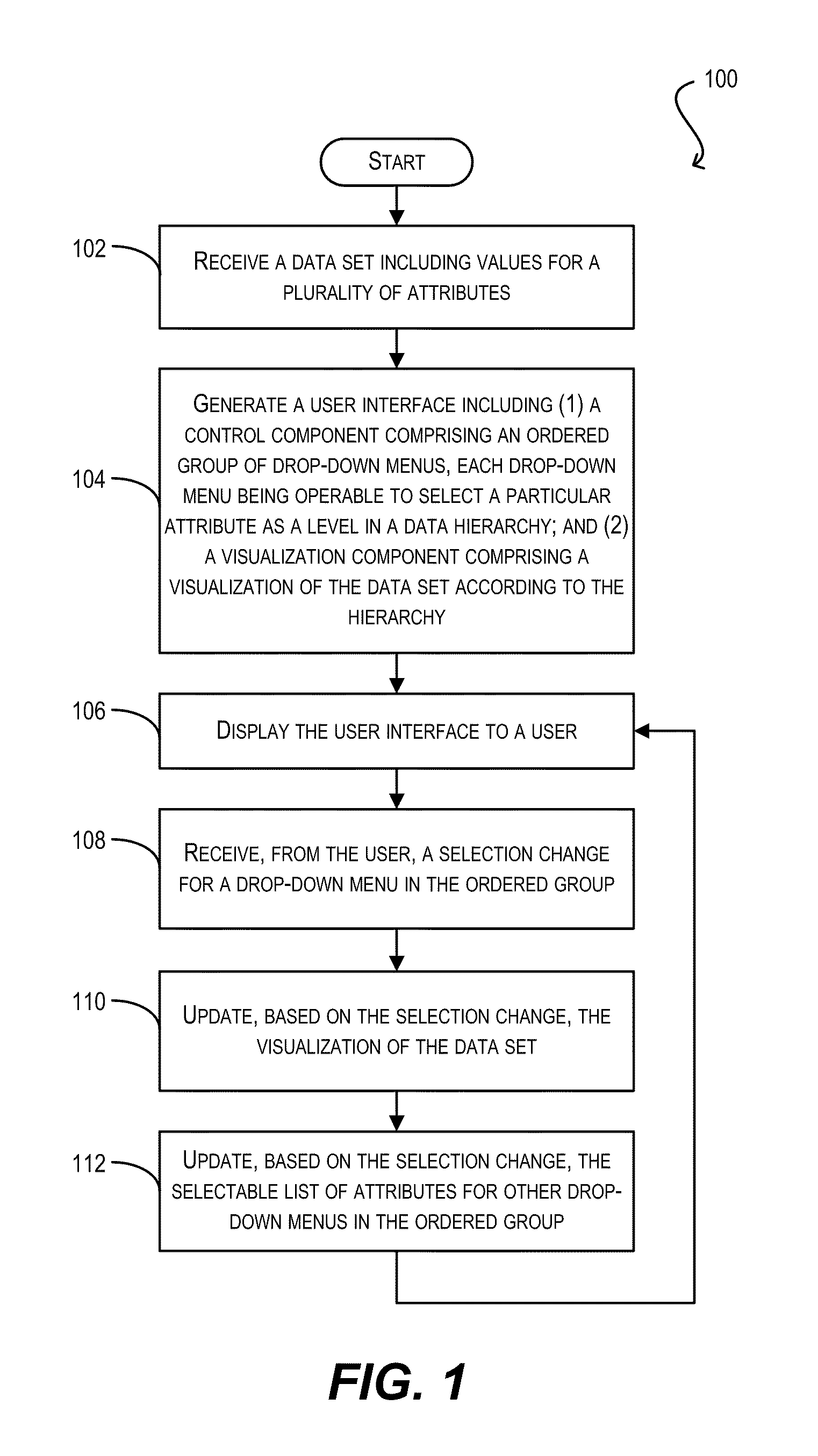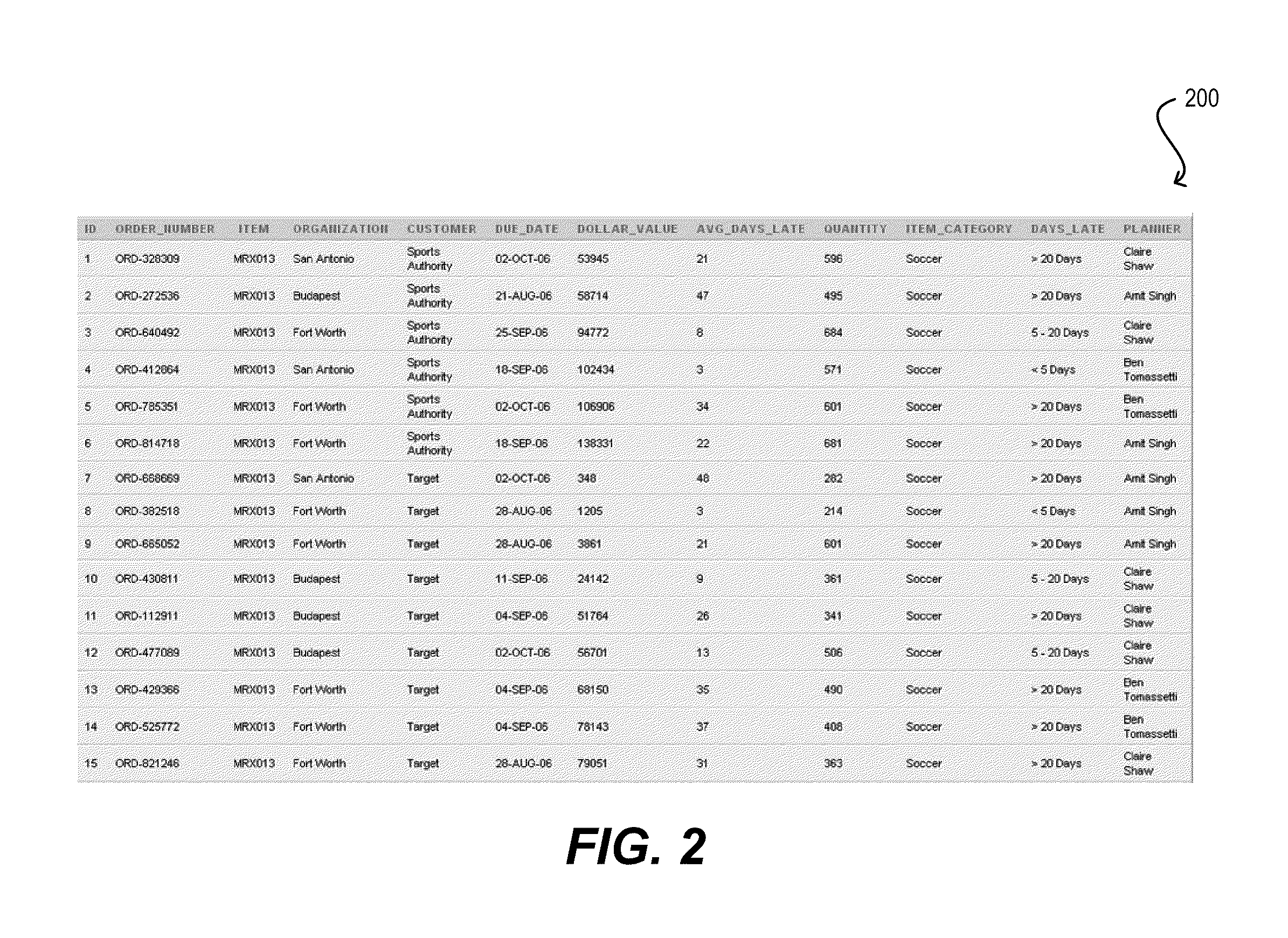User interface controls for specifying data hierarchies
a user interface and data hierarchy technology, applied in the field of user interface design, can solve problems such as difficulties in forming users, and difficulty in forming users, and achieve the effect of facilitating the specification of data hierarchies
- Summary
- Abstract
- Description
- Claims
- Application Information
AI Technical Summary
Benefits of technology
Problems solved by technology
Method used
Image
Examples
Embodiment Construction
[0029]In the following description, for the purposes of explanation, numerous details are set forth in order to provide an understanding of embodiments of the present invention. It will be apparent, however, to one skilled in the art that certain embodiments can be practiced without some of these details.
[0030]Embodiments of the present invention provide user interface (UI) controls that facilitate the specification of data hierarchies. In one set of embodiments, a first UI control component can be provided that comprises an ordered group of drop-down menus. Each drop-down menu in the ordered group can be populated with a selectable list of attributes from a data set and can be associated with a level in a data hierarchy. By selecting values (e.g., data set attributes) for the various drop-down menus, a user can interactively specify a data hierarchy for the data set. The data set can then be visualized according to the specified data hierarchy. In further embodiments, a second UI c...
PUM
 Login to View More
Login to View More Abstract
Description
Claims
Application Information
 Login to View More
Login to View More - R&D
- Intellectual Property
- Life Sciences
- Materials
- Tech Scout
- Unparalleled Data Quality
- Higher Quality Content
- 60% Fewer Hallucinations
Browse by: Latest US Patents, China's latest patents, Technical Efficacy Thesaurus, Application Domain, Technology Topic, Popular Technical Reports.
© 2025 PatSnap. All rights reserved.Legal|Privacy policy|Modern Slavery Act Transparency Statement|Sitemap|About US| Contact US: help@patsnap.com



